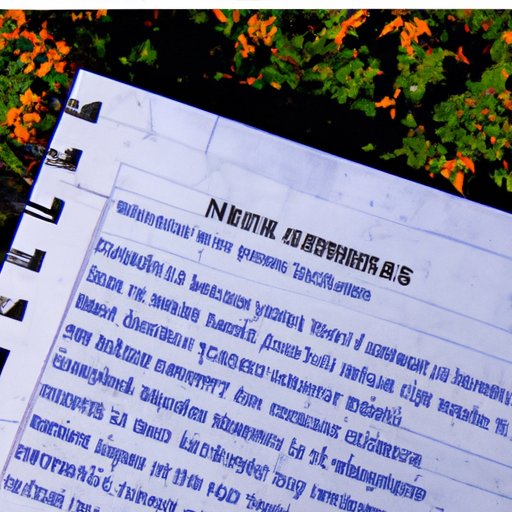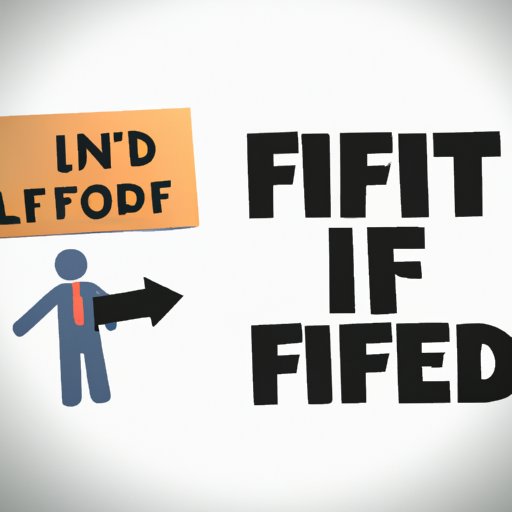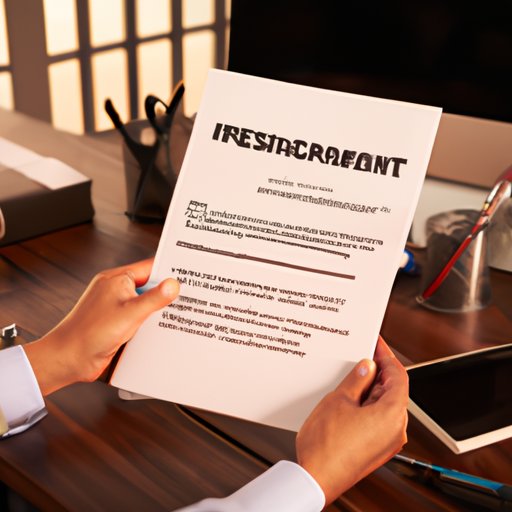Exploring the Legality of Claiming Unemployment After Being Fired
Being fired from a job can be a stressful and disheartening experience. But understanding the laws surrounding claiming unemployment benefits after being terminated can help make the process easier. In this article, we’ll explore the legality of collecting unemployment after being fired, what to do if you’re fired and need unemployment benefits, and how to file for unemployment if you’ve been fired.

Overview of Laws Governing Collecting Unemployment Benefits After Termination
The laws governing collecting unemployment benefits after termination vary by state. It’s important to understand the specific rules and regulations in your state before filing for unemployment benefits. Generally speaking, you may be eligible to collect unemployment if you were fired due to no fault of your own, such as lack of work or because of a company restructuring.

Understanding the Difference Between Being Fired and Laid Off
It’s important to understand the difference between being fired and laid off when it comes to collecting unemployment benefits. Being “fired” typically means that the employee was terminated due to their own misconduct or performance issues. On the other hand, being “laid off” usually means that the employee was terminated due to a lack of work or a company restructuring. In most cases, if you were laid off you will be eligible to collect unemployment benefits.
What to Do If You’re Fired and Need Unemployment Benefits
If you’ve been fired and need unemployment benefits, the first step is to gather all necessary documentation. This includes any paperwork related to the termination, such as a letter from your employer or a copy of your final paycheck. You’ll also need to provide proof of your employment history, such as pay stubs or W-2 forms. Finally, you’ll need to provide proof of your identity, such as a driver’s license or passport.
Can I Receive Unemployment Benefits If I’m Fired?
In most cases, you may be eligible to receive unemployment benefits if you were fired due to no fault of your own. However, there are certain eligibility requirements that must be met in order to qualify for benefits. These include having earned enough wages during your base period (the 12 months prior to filing for benefits), having worked a minimum number of hours, and being unemployed through no fault of your own. Additionally, certain factors such as criminal convictions or past fraud may affect your eligibility.
How to File for Unemployment if You’ve Been Fired
Once you have gathered all the necessary documentation and information, you can begin the process of filing for unemployment benefits. The first step is to know where to submit your application. Depending on your state, you may be able to file online or by mail. Once you have determined the method of filing, you’ll need to gather all the necessary information, such as your Social Security Number, bank account information, and proof of identity. Finally, you’ll need to submit the application, which may take several weeks to process.
The Rules of Collecting Unemployment After Being Fired
Once you have been approved for unemployment benefits, there are certain rules that must be followed in order to continue receiving them. For example, you must be actively looking for work while collecting benefits. Additionally, the duration of benefits varies depending on your state, but typically range from 26-52 weeks.

Understanding Your Rights as an Employee After Being Terminated
Finally, it’s important to understand your rights as an employee after being terminated. Knowing your rights under the law can help protect you during the termination process. Additionally, if you feel that you have been wrongfully terminated, it may be in your best interest to seek legal advice. An attorney can help ensure that your rights are protected and that you receive the compensation you deserve.
Collecting unemployment benefits after being fired can be a complicated process, but with the right information and guidance, it can be made easier. Understanding the laws governing collecting unemployment after being terminated, gathering the necessary documentation, and knowing your rights as an employee can help make the process smoother.
(Note: Is this article not meeting your expectations? Do you have knowledge or insights to share? Unlock new opportunities and expand your reach by joining our authors team. Click Registration to join us and share your expertise with our readers.)
